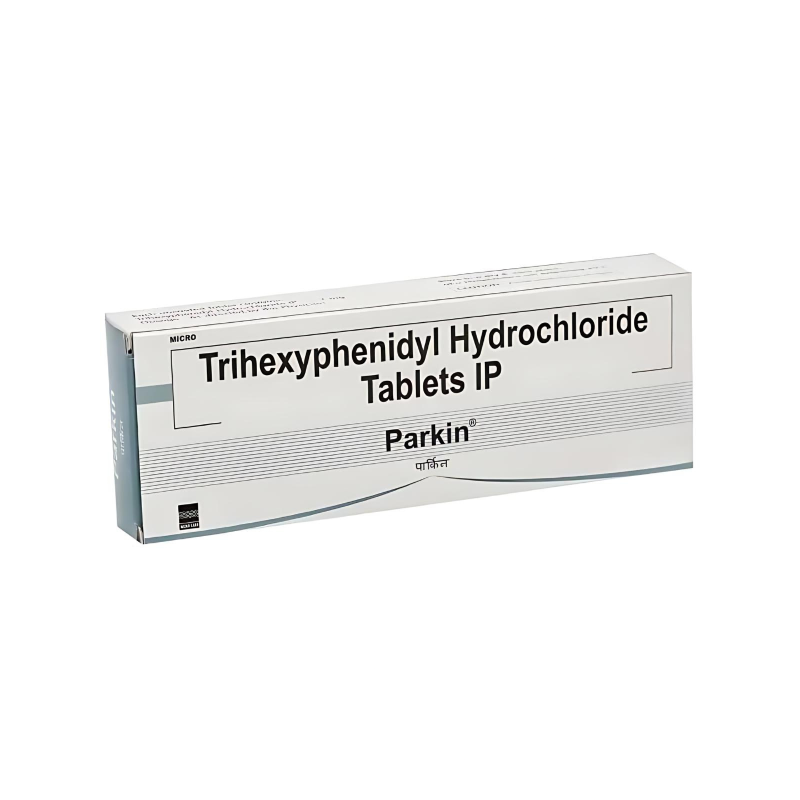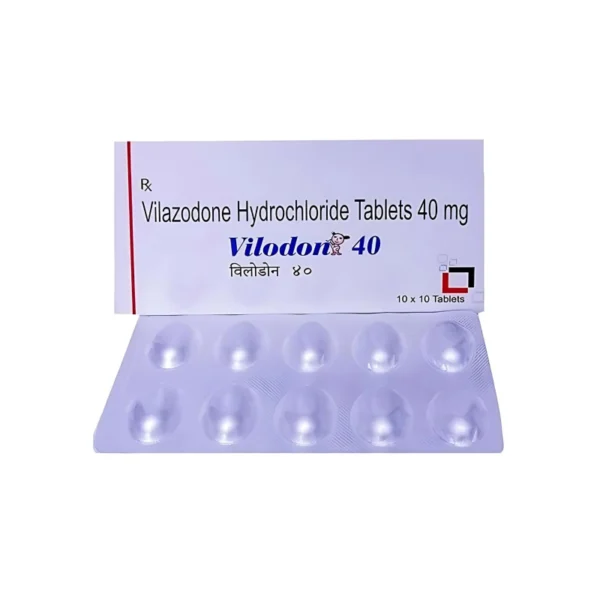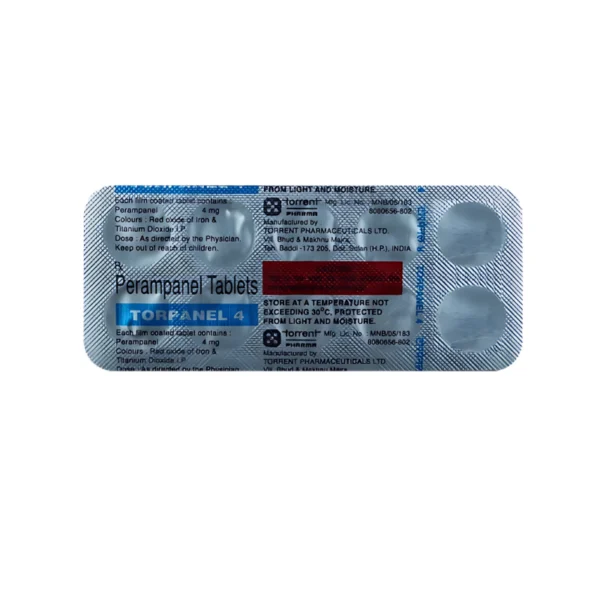FLAT 10% OFF ON YOUR FIRST ORDER. USE IVER10
Parkin Tablet (Trihexyphenidyl)
Price range: $19.00 through $59.00
Parkin Tablet contains Trihexyphenidyl, an anticholinergic medicine used to relieve symptoms of Parkinson’s disease such as muscle stiffness, tremors, and balance difficulties. It also helps manage movement disorders caused by other medications. By blocking excess acetylcholine activity in the brain, Parkin improves muscle control and mobility, enhancing your daily functioning and quality of life. Typically taken once or twice daily, it should be used consistently and never stopped abruptly.
- Buy 2 and get Flat 15% Off. Use B2SAVE15
- Buy 3 and get Flat 20% Off. Use B3SAVE20
Parkin Tablet (Trihexyphenidyl) – Treatment for Parkinson’s Disease & Drug-Induced Movement Disorders
Parkin Tablet is an anticholinergic medication primarily used to treat symptoms of Parkinson’s disease, including muscle stiffness, tremors, and balance problems. It’s also effective in managing drug-induced movement disorders caused by antipsychotic medications. By blocking acetylcholine activity in the brain, Parkin Tablet helps restore muscle control and mobility. Patients typically take it once or twice daily, preferably on an empty stomach, though it can be taken with food if stomach upset occurs. Consistent use is crucial – never stop abruptly without medical supervision as symptoms may worsen. Improvement in daily activities and mobility are key indicators that the medication is working effectively.
Uses of Parkin Tablet:
- Treatment of Parkinson’s disease symptoms (stiffness, tremors, balance issues)
- Management of drug-induced abnormal movements
- Control of muscle spasms and restlessness
Benefits of Parkin Tablet:
- Reduces muscle stiffness and improves mobility
- Helps control tremors and balance problems
- Manages movement disorders caused by other medications
- Enhances quality of life by improving daily functioning
Side Effects of Parkin Tablet:
- Dry mouth (maintain oral hygiene and increase water intake)
- Blurred vision (avoid contact lenses)
- Drowsiness and dizziness
- Nausea and vomiting
- Constipation
- Urinary retention
- Confusion (especially in elderly patients)
How to Use Parkin Tablet?
Take exactly as prescribed, usually 1-2 times daily. Swallow whole with water – do not crush or chew. Can be taken with food if stomach upset occurs. For best results, take at consistent times each day. Dose will be gradually increased by your doctor to minimize side effects.
How Parkin Tablet Works?
It contains trihexyphenidyl, which blocks acetylcholine receptors in the brain. Acetylcholine is a neurotransmitter that becomes overactive in Parkinson’s disease, causing muscle stiffness and tremors. By inhibiting its action, Parkin Tablet helps restore normal muscle movement and control.
Safety Advice:
- Alcohol: Unsafe – Increases drowsiness risk
- Pregnancy: Consult doctor – Potential fetal risk
- Breastfeeding: Safety unknown – Consult doctor
- Driving: Unsafe – May cause blurred vision/drowsiness
- Kidney Disease: Use with caution – Limited safety data
- Liver Disease: Use with caution – Limited safety data
- Glaucoma/Prostate Issues: Inform your doctor before use
Important Drug Interactions:
- Memantine (may increase blood levels)
- Antipsychotics (thioridazine, aripiprazole, pimozide)
- Other anticholinergics (solifenacin)
What If You Miss a Dose?
Take as soon as remembered unless close to next dose time. Never double dose. If multiple doses missed, consult doctor to adjust treatment plan.
FAQs:
Q1. Is Parkin Tablet addictive?
No, it’s not narcotic but has abuse potential due to euphoric effects in some individuals.
Q2. What happens if I overdose?
Overdose may cause severe dry mouth, dilated pupils, rapid heartbeat, fever, confusion, hallucinations, and seizures. Seek immediate medical help.
Q3. Can I crush the tablet?
No, always swallow whole to ensure proper absorption and avoid side effects.
Q4. Does Parkin cause weight gain?
Weight gain may occur in some patients. Maintain healthy diet and exercise regimen.
Q5. How long must I continue treatment?
Duration varies – some patients require long-term use. Never stop without doctor’s guidance.
Q6. Why must doses be increased gradually?
Slow titration helps minimize side effects while achieving therapeutic benefits.
Q7. Can it affect my vision?
Yes, may cause blurred vision and dry eyes. Avoid contact lenses and report severe symptoms.
Q8. What special precautions should elderly patients take?
Elderly are more prone to confusion, constipation, and urinary retention. Lower doses may be needed.
| Strength | 2 mg |
|---|---|
| Pack Size | 30 Tablets, 60 Tablets, 90 Tablets |










Reviews
There are no reviews yet.